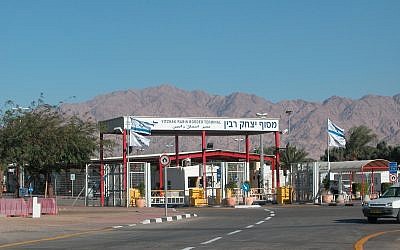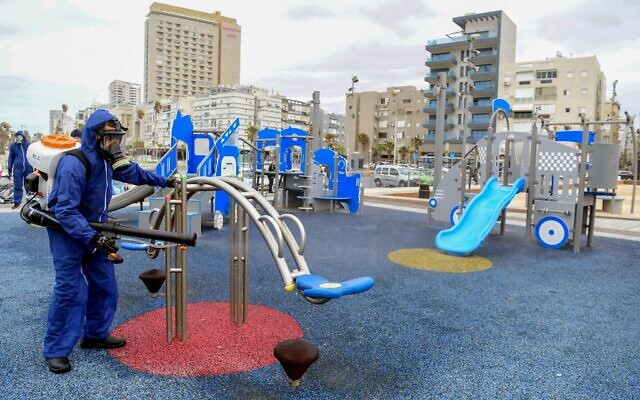Israel Seals its Borders to all Foreigners Amid Coronavirus Outbreak
Israeli citizens, permanent residents still allowed in, but non-nationals, even those who can quarantine, now barred; border crossings with Egypt, Jordan sealed.
Israel announced Wednesday that it was barring all foreigners from entering the country to curb the spread of COVID-19.
As of March 12, only non-Israeli nationals who could prove an ability to self-quarantine in accordance with Health Ministry directives have been allowed into the country. Under the new ban, which took effect immediately, even those able to self-quarantine will be denied entry to Israel.
The Population Immigration and Border Authority, which announced the new policy, said the entry ban was recommended by the Health Ministry and will apply to all international border crossings.
“After receiving the recommendation of the Health Ministry, it was decided that beginning today, the entry of foreigners who are not Israeli citizens or [permanent] residents will not be allowed,” the authority said in a statement.
It said an exception would be made for non-nationals whose “center of life is in Israel,” without elaborating.
The new entry ban appeared to be one of the strictest yet adopted by any country since the first cases of COVID-19 emerged in China in December before spreading across the globe.

Also Wednesday, Interior Minister Aryeh Deri ordered the closure of Israel’s border crossings with Egypt and Jordan.
The order will apply to the Yitzhak Rabin Border Crossing between Eilat and Aqaba and the Jordan River Crossing near the northern Israeli city of Beit She’an, as well as the Taba crossing on the Egyptian border.
Wednesday’s moves came as Israel adopted increasingly stringent measures to contain the virus, with Israelis ordered Tuesday to remain at home unless they need to leave for work, supplies or other essential reasons.
Other restrictions include limitations on public transportation and bans on public gatherings of over 10 people.
Public Security Minister Gilad Erdan said Wednesday a complete lockdown of the country was “inevitable.”

As of Wednesday, there have been 433 confirmed cases of COVID-19 in Israel.
There have been no deaths in the country from the virus, but six people infected are in serious condition.




comments